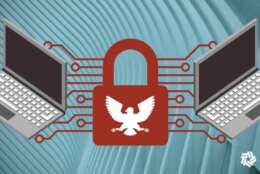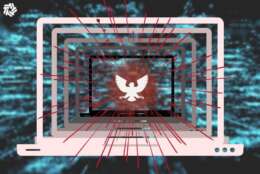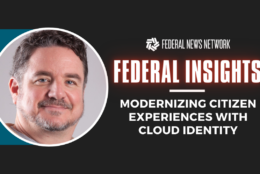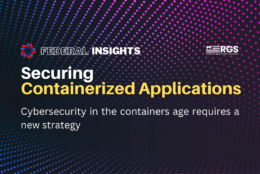Cybersecurity
-
NASA runs on software, as do many federal agencies. Rockets are what they are known for, sure, but controlling them and interpreting data, even handling human resources and finances all require software. Currently, NASA is in development of over 1,000 software features leveraging agile.
December 14, 2022 -
Thrift Savings Plan participants saw a major TSP update on June 1. Now six months later, the Federal Retirement Thrift Investment Board shared progress, ongoing work and lessons learned.
December 12, 2022 -
As government and critical infrastructure sectors prepare to confront a rapidly evolving threat landscape, coordinating security across organizations has become a critical imperative.
December 12, 2022 -
The administration, prompted by Congress, has banned sales of telecommunications gear from Chinese companies. Now the question is: Should anything come next, when it comes to Chinese products that might have national security implications?
December 09, 2022 -
Ross Foard comes to his position at the Cybersecurity and Infrastructure Security Agency with experience. Lots of it. His long and storied federal career has landed him at CISA as an IT and information security specialist. “It’s probably,” he said, his “most rewarding” position to date.
December 08, 2022 -
Host Dave Wennergren speaks with four more outstanding federal technology leaders who recently received ACT-IAC 2022 Executive Leadership Awards.
December 08, 2022 -
A normally divided Federal Communications Commission recently voted unanimously to ban sales of Chinese-made telecommunications equipment in the United States. Specifically, gear made by the Huawai and ZTE.
December 07, 2022 -
The latest FISMA guidance sets a new deadline for agencies to report most of their IT systems through CISA's CDM program.
December 06, 2022 -
The Office of Management and Budget asked agencies to submit data about how they are protecting their domains from distributed denial of service attacks after a Russian-based group claimed responsibility for two successful incidents.
December 06, 2022 -
For nearly a quarter century, the government has been coaxing industry to report cyber security incidents. Now it's the law, and the Cybersecurity and Infrastructure Security Agency has the task of writing the rules and making it happen. For one industry view of how it's going, the Federal Drive with Tom Temin spoke with the Information Technology Industry Council's Senior Director of Policy, Courtney Lang.
December 05, 2022 -
Multifactor authentication and identity are a major issues in front of the federal chief information security officer council.
December 02, 2022 -
In today's Federal Newscast: The Federal Energy Regulatory Commission gets high marks for its cybersecurity program. Watchdogs say mistakes and fraud led to telehealth overbilling during the pandemic. And DoD wants to know if the kids are doing all right.
December 02, 2022 -
For many years, federal agencies treated data as something to guard at all costs, resulting in redundant and disconnected systems across government.
December 01, 2022 -
Customer experience and cybersecurity, frequently considered separate disciplines, are actually closely connected. One simple reason is that leaving constituents’ identities and data open to purloining is not good user experience.
November 29, 2022 -
Federal agencies – along with most large organizations – are steadily moving to a new generation of technology in the deployment of software applications. Regular run-time code gave way to virtual machines, and now virtual is yielding to containerization managed under frameworks like Kubernetes. This methodology brings a new set of cybersecurity risks IT staffs must mitigate.
November 29, 2022















